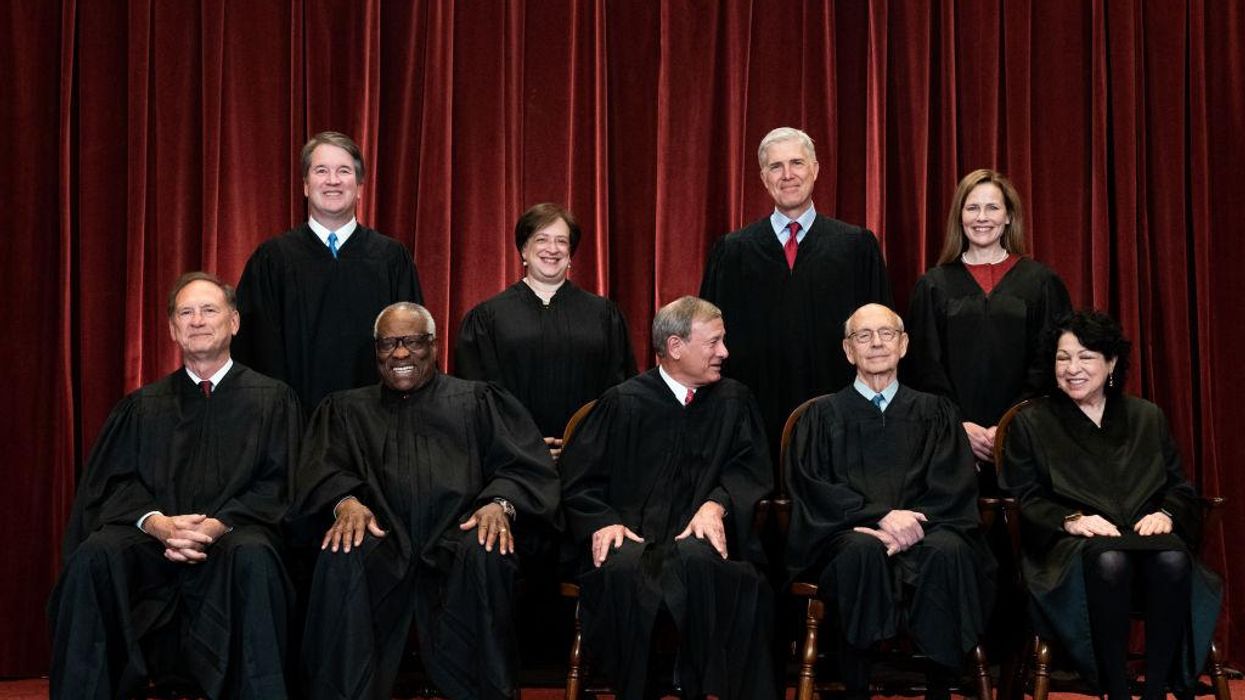
Erin Schaff-Pool/Getty Images

The United States Supreme Court on Friday granted Texas abortion providers standing to sue the state over its fetal heartbeat law, one of the strictest abortion laws in the country. Texas had argued that the law was written in such a way that opponents could not challenge it until it was enforced, but the court ruled 8-1 to let the case proceed.
"The Court concludes that the petitioners may pursue a pre-enforcement challenge against certain of the named defendants but not others," Justice Neil Gorsuch said, writing for the majority.
The court also dismissed a challenge to the law from the Biden administration's Department of Justice on Friday. Only the suit brought forward by private parties will proceed, and the constitutionality of the law will be decided after that litigation.
The Texas law effectively bans abortions after six weeks of pregnancy, the point at which a fetal heartbeat is detected. The law also prohibits any individual from "aiding or abetting" an abortion after this point, which includes paying for an abortion or helping a woman obtain one in Texas.
Opponents of the law have accused it of end-running around Supreme Court precedent on abortion through its unique and controversial enforcement mechanism. Instead of the state government enforcing the law, "any person" other than a government official may file a civil lawsuit to enforce the law against anyone who performs or intends to perform a prohibited abortion, or someone who aids and abets one. This provision is intended to protect the law from review by federal courts, which has led to accusations by critics that if this scheme were widely adopted for all sorts of laws, the Constitution would be rendered meaningless.
Though some members of the court would have blocked the Texas law, including Chief Justice John Roberts, the majority of the court let the law remain in effect pending the legal challenges.
Justices Amy Coney Barrett, Samuel Alito, and Brett Kavanaugh joined Gorsuch's opinion in full to allow the lawsuit brought against Texas to proceed while letting the law stand.
Justice Clarence Thomas concurred with the majority in part and dissented in part. He wrote that "there is no freestanding constitutional right to pre-enforcement review in federal court" and said he would have dismissed the lawsuit entirely.
"I would reverse in full the District Court’s denial of respondents’ motions to dismiss and remand with instructions to dismiss the case for lack of subject-matter jurisdiction," he said.
Roberts, joined by Justices Breyer, Sotomayor, and Kagan, agreed that the lawsuit should proceed but blasted the Texas law as unconstitutional and said he would have blocked it from taking effect.
"Texas has passed a law banning abortions after roughly six weeks of pregnancy. That law is contrary to this Court's decisions in Roe v. Wade and Planned Parenthood of Southeastern Pa. v. Casey. It has had the effect of denying the exercise of what we have held is a right protected under the Federal Constitution," Roberts wrote.
"Texas has employed an array of stratagems designed to shield its unconstitutional law from judicial review," he added.
Roberts strongly condemned Texas for seeking to "nullify this Court's rulings," declaring that "it is the role of the Supreme Court in our constitutional system that is at stake."
The chief justice's language will come as a disappointment to pro-life activists, who have hoped Roberts would join other Republican-appointed justices in overturning Roe v. Wade in a separate court case involving Mississippi's 15-week abortion ban.